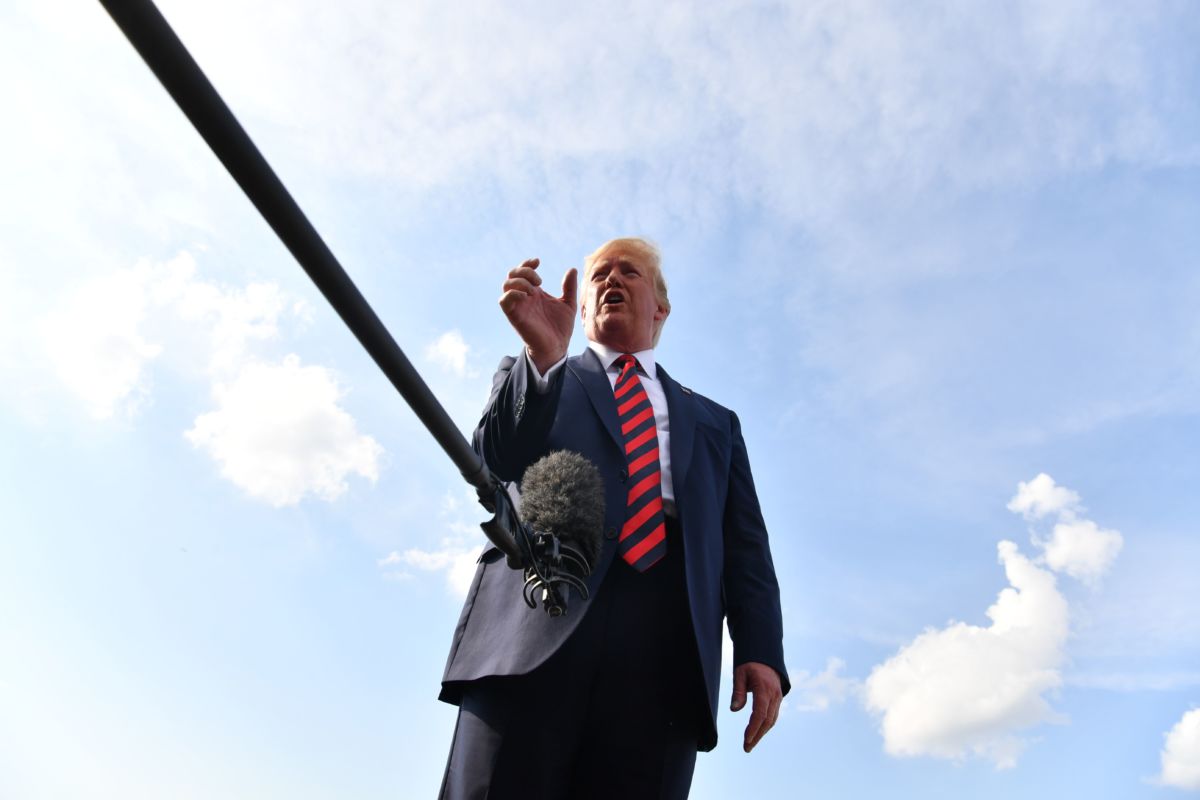Likening the idea to a “large real estate deal,” President Donald Trump claimed on Sunday that he is considering purchasing Greenland, which is not for sale.
Trump said the idea of acquiring the semi-autonomous Danish island is “strategically” interesting, although he noted that it is not a top priority for the White House. The president also said that Denmark might want to sell the icy 836,000 square-mile island in the North Atlantic — the world’s largest island — to save money.
“We’re very good allies with Denmark. We protect Denmark like we protect large portions of the world,” Trump said. “Strategically, it’s interesting, and we’d be interested. But we need to talk to them a little bit. It’s not number one on the burner.”
The president went on to compare purchasing the territory from Denmark to a “large real estate deal.”
“A lot of things can be done,” he said of purchasing Greenland. “It’s hurting Denmark very badly, because they’re losing almost $700 million a year carrying it. So they carry it at a great loss. Strategically for the United States, it would be nice. We’re a big ally of Denmark, and we help Denmark. And we protect Denmark.”
President Trump acknowledges discussing the U.S. potentially buying Greenland: “Essentially, it’s a large real estate deal” https://t.co/H9n7JKbYS7 pic.twitter.com/l5ymJuseI3
— CBS News (@CBSNews) August 18, 2019
The proposed acquisition, first reported last Thursday by the Wall Street Journal, was greeted with a chorus of surprise and confusion. Officials in Greenland have said in recent days that the island is not on the market.
The island, which is home to roughly 56,000 people, is believed to contain a host of natural resources, including coal and uranium. The U.S. already houses a military base there, part of the nation’s ballistic early-warning system.
It is unclear how much the U.S. would offer for it, but Trump is not the only American leader who has looked into buying the island. The U.S. has considered purchasing Greenland twice previously — in 1867 and 1946, when President Harry Truman offered $100 million for the territory only to be rebuffed by Denmark.
In the wake of Trump’s remarks Sunday, Denmark’s Prime Minister, Mette Frederiksen, sought to again clarify that the territory is not for sale and called the president’s intention to buy it “an absurd discussion.”
“Greenland is not Danish. Greenland is Greenlandic,” Frederiksen told the Associated Press. “I persistently hope that this is not something that is seriously meant.”
“Thankfully, the time where you buy and sell other countries and populations is over. Let’s leave it there,” he continued. “Jokes aside, we will of course love to have an even closer strategic relationship with the United States.”
Our most important fundraising appeal of the year
December is the most critical time of year for Truthout, because our nonprofit news is funded almost entirely by individual donations from readers like you. So before you navigate away, we ask that you take just a second to support Truthout with a tax-deductible donation.
This year is a little different. We are up against a far-reaching, wide-scale attack on press freedom coming from the Trump administration. 2025 was a year of frightening censorship, news industry corporate consolidation, and worsening financial conditions for progressive nonprofits across the board.
We can only resist Trump’s agenda by cultivating a strong base of support. The right-wing mediasphere is funded comfortably by billionaire owners and venture capitalist philanthropists. At Truthout, we have you.
We’ve set an ambitious target for our year-end campaign — a goal of $250,000 to keep up our fight against authoritarianism in 2026. Please take a meaningful action in this fight: make a one-time or monthly donation to Truthout before December 31. If you have the means, please dig deep.
